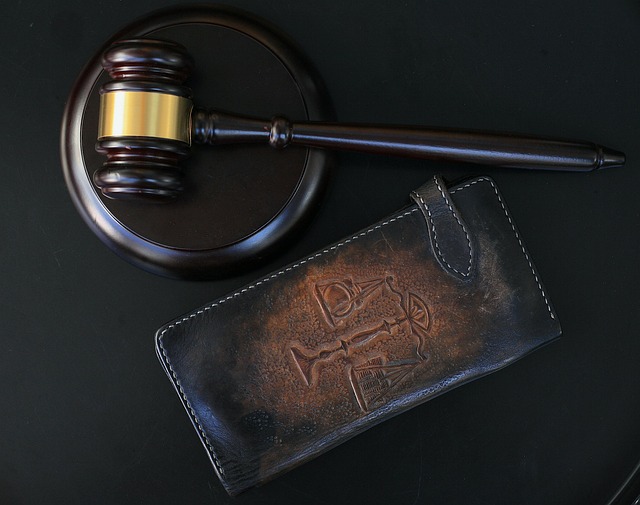Injury mediation is a cost-effective and efficient alternative to court litigation for resolving car accident disputes, facilitating faster settlements and improved relationships between insurers and claimants. Insurance companies prefer it due to its financial viability, even for smaller claims, and the ability to streamline communication for swift dispute resolution. For personal injury cases, mediation offers quicker resolutions (typically reaching agreements in a fraction of the time compared to trials), especially beneficial for victims needing immediate compensation, as well as a collaborative environment encouraging open communication between all parties to reach compromises, particularly in complex cases.
In today’s complex legal landscape, insurance companies are increasingly recognizing the benefits of injury mediation as an alternative to court litigation. This shift is driven by the desire to streamline claims processes and reduce costs. Injury mediation offers a more efficient, collaborative approach, where parties meet to negotiate a settlement without the formality of a courtroom. Understanding this trend reveals why insurance providers are opting for mediation, and what advantages it holds for personal injury claimants.
- Understanding Injury Mediation: An Alternative to Court Litigation
- Reasons Insurance Companies Opt for Mediation Over Legal Proceedings
- The Benefits of Choosing Mediation for Personal Injury Cases
Understanding Injury Mediation: An Alternative to Court Litigation

Injury mediation is an alternative dispute resolution process that offers a more efficient and cost-effective solution compared to traditional court litigation. It is a structured negotiation where both parties, in this case, the insurance company and the claimant, come together with a neutral third party, known as a mediator, to reach a mutually agreeable settlement for car accident injuries or other similar cases. This method encourages open communication and collaboration, allowing for a quicker resolution of contract disputes related to accident compensation.
Unlike court proceedings, which can be lengthy and expensive, mediation provides a private and impartial setting. The mediator facilitates discussions, helps identify key issues, and explores creative solutions. This approach is particularly beneficial when dealing with complex cases or where the parties have differing views on the value of the claim. By focusing on finding common ground and mutually acceptable outcomes, injury mediation can lead to faster settlements and better relationships between the insurance company and claimants.
Reasons Insurance Companies Opt for Mediation Over Legal Proceedings

Insurance companies often prefer injury mediation to traditional legal proceedings for several strategic reasons. One key advantage is cost-effectiveness. Mediation sessions are generally less expensive than lengthy court battles, as they involve a more streamlined process with reduced legal fees and overhead costs. This preference makes financial sense, especially in cases where the overall value of the claim might not warrant the extensive legal expenditures associated with formal litigation.
Furthermore, mediation offers a more efficient approach to resolving disputes. Unlike courts, which can have backlogs resulting in lengthy waits for trials, mediation provides a swift alternative. By facilitating direct communication between parties, mediators help simplify complex matters and encourage collaborative problem-solving. This efficiency is particularly beneficial in managing personal injury claims or even employment disputes, where prompt accident compensation and resolution are often priorities for all involved.
The Benefits of Choosing Mediation for Personal Injury Cases

Choosing injury mediation over traditional court proceedings offers several significant advantages for personal injury cases. One of the key benefits is its ability to facilitate a quicker resolution. Mediation sessions are typically more efficient, allowing both parties to reach an agreement in a fraction of the time it would take for a case to go to trial. This speedier process can be especially beneficial for victims who require financial compensation to cover immediate medical expenses or ongoing rehabilitation needs.
Injury mediation also promotes a more collaborative environment compared to the adversarial nature of court. It encourages open communication between the insured, insurance companies, and representatives, fostering an atmosphere where compromises can be made. This approach is particularly effective in complex cases, such as medical malpractice or slip-and-fall incidents, where multiple parties are involved and understanding each other’s perspectives is crucial for a fair outcome.
Injury mediation has emerged as a preferred alternative to court litigation, offering a faster, more cost-effective, and mutually beneficial resolution for both insurance companies and plaintiffs. By opting for mediation, insurance providers can streamline claims processes, reduce legal expenses, and foster better relationships with policyholders. This proactive approach not only benefits businesses but also ensures victims of personal injuries receive fair compensation without the lengthy and stressful court process. Thus, as the article highlights, injury mediation is a game-changer in the insurance industry, providing a win-win solution for all involved parties.






